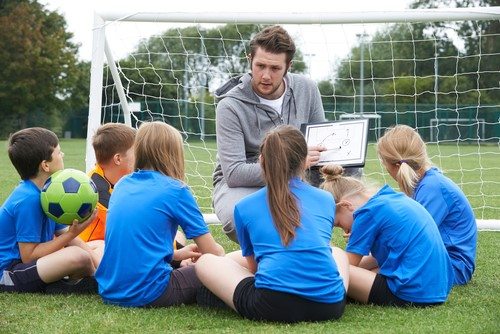Can Exercise Help Students to Excel Academically?

It’s common knowledge that physical activity is an essential factor in lowering the risk of child obesity, but new research is proving that a fit body can also equal a fit mind. In other words, ensuring your kids stay active could be the first investment you make in their college fund.
Findings from the realms of education and biology research hint that regular exercise creates numerous benefits for the brain. Not only can regular workouts in the school gym or on the playground improve learning capacity, attention span, and memory, but it also works to reduce stress, and even combat the effects of attention-deficit hyperactivity disorder. As a Together Counts™ partner, we recognize the notion that that keeping your kids active could make them smarter.
How so? Learning functions and memory retention are functions in the brain that rely on the growth and nourishment of brain cells, and exercise creates the best environment for that process to occur.
It All Adds Up: Exercise and Math
A recent study suggests that there may be a link between regular participation in physical education and the mathematics scores that children achieve on standardized tests. The study shows a connection between the amount of time students spent taking part in physical activity at school, and the scores they achieved during math-based exams. But the scientifically-backed connections don’t stop here. In fact, various pieces of research over the years have been able to point to the obvious interaction between physical health, and brain function.
Why the Research Makes Sense
While other studies have shown that academic performance is influenced by various factors, including socioeconomic status and parental involvement, a growing body of evidence has begun to reveal that active children often have a stronger performance in school, particularly in regards to mathematics and reading.
The reason for this is simple – physical activity promotes positive mental health, reduces the likelihood of developing risk factors for chronic disease and helps to build strong muscles, but it also affects academic achievement by enhancing concentration and improving classroom behavior.
Encouraging Educational Exercise
As more evidence continues to show the intertwining natures of exercise and brain function, it only makes sense that more groups are coming together to advocate the importance of after school activities and physical education in schools. Reports have already begun to suggest that all students should be getting at least sixty minutes of moderate to vigorous physical activity every day, and yet only about half of school-age children are meeting this guideline.
Fortunately, parents may be able to help supplement some of the exercise that kids aren’t getting at certain schools. By supporting physical education classes, classroom breaks and recess, then encouraging children to take part in after-school sports and activity, they can increase the chances that their child will come to think of exercise as a normal, habitual, and important part of life.
SPARK is a research-based organization that provides award-winning, evidence-based programs for Physical Education (K-12), After School, Early Childhood, and Coordinated School Health and is a member of the Together Counts Program™. Since 1989, SPARK has provided curriculum, training, and consultation to over 100,000 teachers and youth leaders worldwide. Visit www.sparkpe.org to download sample lesson plans, find grant opportunities, and register for free educational webinars and monthly eNewsletters.
For more tips on how your family can live more healthfully, check out these other posts from Together Counts!

